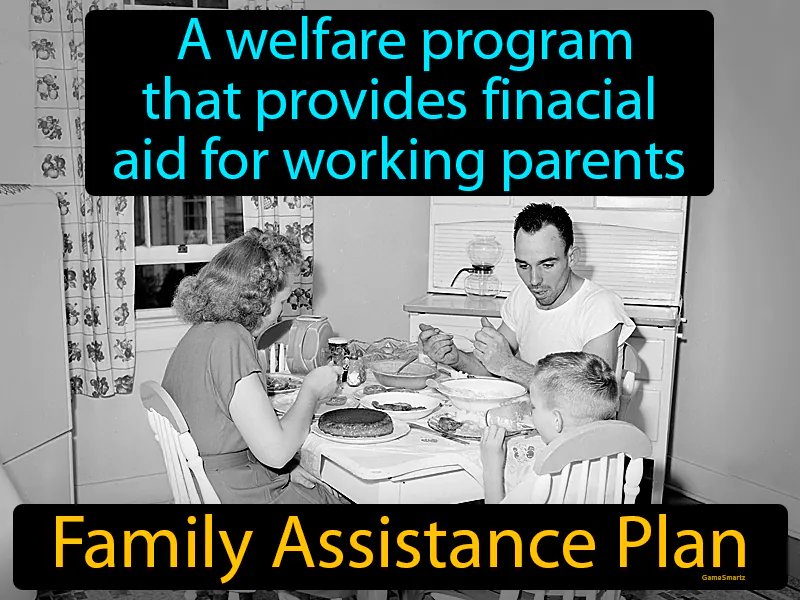Family Assistance Plan
Family Assistance Plan: Easy to understand
The Family Assistance Plan (FAP) was proposed by President Richard Nixon in 1969 during a time when the United States faced economic challenges and social unrest, known as "A Crisis in Confidence." It aimed to provide financial support to low-income working families through a negative income tax, ensuring they received a minimum income level. The plan was important because it sought to simplify the welfare system and reduce poverty by encouraging work, addressing concerns about welfare dependency. Although it was never enacted, the FAP highlighted the ongoing debate about how best to support families in need. Today, similar ideas influence discussions on universal basic income and earned income tax credits, which aim to help families make ends meet, like how tax credits help single parents afford childcare, allowing them to work more hours.

Practice Version

Family Assistance Plan: A welfare program which aimed to implement a negative income tax for working parents. Family Assistance Plan. The Family Assistance Plan was a proposed policy by President Nixon in the 1960s to provide a guaranteed minimum income for families.